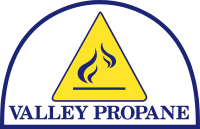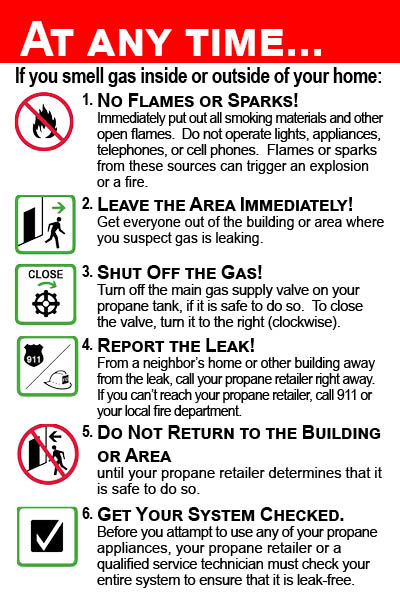Follow these before, during, and after instructions to keep your family safe in the event of a Power Outage.
If a power outage occurs due to a severe weather-related condition, tune in on a battery-powered radio for instructions from local authorities on the appropriate course of action to take. During these periods, it is recommended to turn off all the lights and appliances on your property that were operating before the outage occurred (with the exception of at least one light—to help signal when the power returns). This will reduce any type of power surge from occurring once the electricity returns. During extended power outages, some people may choose to use a portable generator, allowing them to keep food from spoiling, computers and other appliances working, and, in some cases, life supporting medical devices operating. Use extreme caution when operating portable generators. To help reduce the potential for injury or death, there are additional safety rules you should observe at all times:
Be Prepared For Power Outages Before They Happen
- Know how and where to shut off the outdoor propane supply and indoor propane appliances. For more information, contact your propane retailer.
- MAKE SURE THAT YOU AND YOUR FAMILY KNOW WHAT PROPANE SMELLS LIKE. Propane has a strong, unpleasant smell like rotten eggs, a skunk’s spray, or a dead animal.
- NEVER store or place a propane cylinder indoors or in an enclosed area such as a basement, garage, shed, or tent.
- It is recommended that you consider installing a carbon monoxide (CO) detector listed by Underwriters Laboratories (UL) on every level of your home. Be sure to follow the manufacturer’s instructions regarding installation, location, and maintenance.
- Propane gas detectors provide an additional measure of security. It is recommended that you consider installing one or more propane gas detectors listed by UL. Be sure to follow the manufacturer’s instructions regarding installation, location, and maintenance.
- Have a list of instructions on how to turn off electricity, propane, and water. Review suggested preparations for weather hazards and natural disasters with your propane retailer as well as other utility suppliers. Advise them of any special needs you may have.
- Create an emergency preparedness plan and review it regularly with your family in order to keep them safe during a potential disaster.
If a power outage occurs due to a severe weather-related condition, tune in on a battery-powered radio for instructions from local authorities on the appropriate course of action to take. During these periods, it is recommended to turn off all the lights and appliances on your property that were operating before the outage occurred (with the exception of at least one light—to help signal when the power returns). This will reduce any type of power surge from occurring once the electricity returns. During extended power outages, some people may choose to use a portable generator, allowing them to keep food from spoiling, computers and other appliances working, and, in some cases, life supporting medical devices operating. Use extreme caution when operating portable generators. To help reduce the potential for injury or death, there are additional safety rules you should observe at all times:
- NEVER use a portable generator indoors or in an enclosed area such as a basement, garage, shed, or tent. This can result in
CO poisoning or death. - NEVER use outdoor propane appliances indoors or in enclosed areas. This can result in CO poisoning or death. These include outdoor portable heaters, barbecue grills, and portable generators. Only use appliances indoors that are designed and approved for indoor use.
- NEVER store or place a propane cylinder indoors or in an enclosed area such as a basement, garage, shed, or tent.
- NEVER use a gas oven or range-top burners to provide space heating. Since there are several types of severe weather-related conditions that can cause power outages, and other types of damage and destruction, it is important to use caution in the area surrounding your home or farm. If you have any doubts about your safety, leave the area immediately and have your property inspected by a qualified building inspector or structural engineer before re-entering. Take the time to carefully evaluate the condition of all the structures on your property. If it is dark, use flashlights, not candles.
- Look carefully around the entire area. Check for downed power lines; they can create major safety hazards. Some severe weather related conditions can move, shift, or damage gas lines and tanks. Immediately call your local utility company or propane retailer if any of these hazards exist.
Follow These General Safety Rules
A power outage can cause appliances such as a refrigerator or freezer to leak water, or a sump pump to stop working, which may cause propane appliances to get wet, creating a potentially dangerous situation. To help reduce the potential for injury or death, there are general safety rules you should observe at all times:
- DO NOT UNDER ANY CIRCUMSTANCES TRY TO MODIFY OR REPAIR VALVES, REGULATORS, OR OTHER APPLIANCE PARTS.
- NEVER turn on a light switch, use any power source, or inspect your household appliances while standing in water. This can result in electrocution.
- DO inspect your propane appliances for water or other damage, if it is safe to do so. If the appliances have electric components and have been exposed to water, they can create a fire hazard.
If you suspect any of your propane appliances, equipment, or vehicles have been under water or they have been damaged, or you
have turned off your gas supply:
- DO schedule a time for a qualified service technician to perform a complete inspection of your propane system. The technician can also perform a leak test on the system and re-light your pilot lights.
- DO NOT use or operate appliances, equipment, or vehicles, or turn on the gas supply, until your system has been inspected by a qualified service technician.

